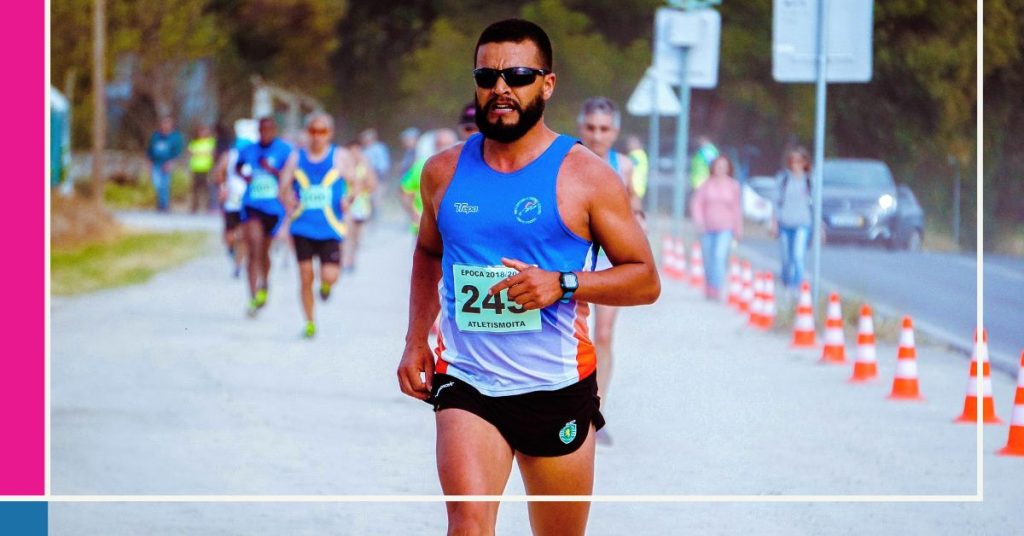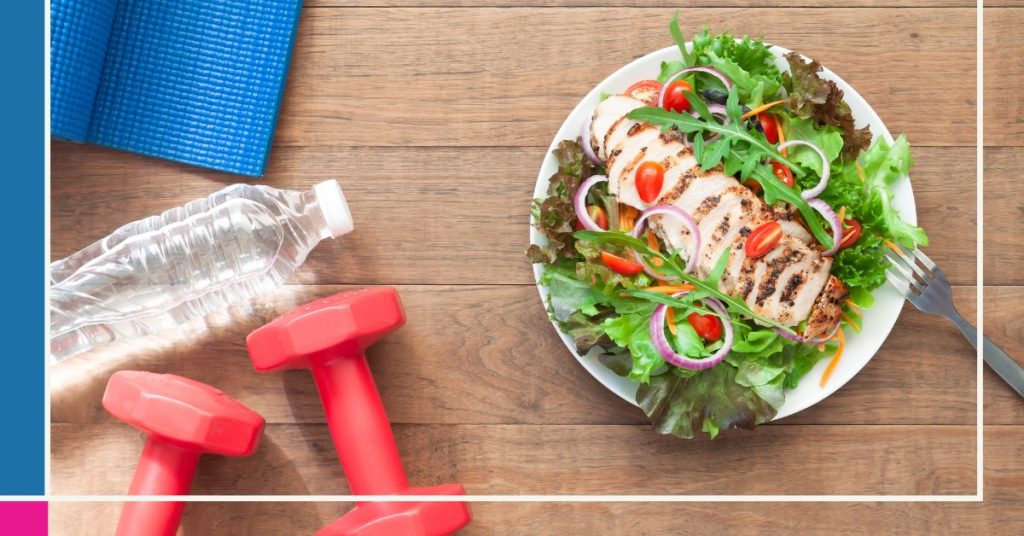When it comes to running, especially for those of us over 40, nutrition is a game-changer. It’s not just about the miles you log but how you fuel your body for those miles. The best nutrition for running can make the difference between merely finishing a run and setting a new personal record.
At Midlife Runners Paradise, we understand the unique needs of midlife runners. Our holistic approach integrates heart-based training, 80/20 strength training, and balanced run/walk strategies. But that’s only part of the equation. The right nutrition is essential to maximize these efforts and achieve overall wellness.
Proper running nutrition is about more than just energy; it’s about resilience and recovery. It helps you maintain stamina during your run, recover quickly afterwards, and improve your overall health. At Midlife Runners Paradise, we focus on practical, sustainable dietary habits that support lifelong physical and mental well-being.
In this guide, we’ll explore the best nutrition for running, offering actionable advice to help you fuel your next run and push your limits. Whether you’re aiming for a new personal record or just looking to improve your health, the right nutrition can empower your journey.
Why Nutrition Matters for Runners
Proper nutrition is crucial for running performance, recovery, and overall health. It’s the foundation that supports your body through every stride, helping you achieve your personal records and maintain resilience. The best nutrition for running provides the energy needed for endurance, the nutrients required for muscle repair, and the hydration essential for peak performance.
When you consume the right balance of carbohydrates, proteins, fats, vitamins, and minerals, your body functions optimally during runs. Carbohydrates are your primary energy source, fueling your muscles and brain. Proteins aid in muscle recovery and growth, while healthy fats provide sustained energy. Vitamins and minerals support various bodily functions, from oxygen transport to muscle contraction.
In addition to fueling your performance, the best nutrition for running plays a significant role in recovery. After a run, your body needs nutrients to repair muscle fibers and replenish glycogen stores. Proper post-run nutrition reduces recovery time, allowing you to train more effectively and avoid injuries.
Essential Nutrients for Runners
Understanding the essential nutrients for running is vital to optimize your performance and recovery. Here’s a breakdown of the key nutrients that every runner needs:
Carbohydrates
Carbohydrates are the primary fuel source for runners. They provide the energy required for sustained endurance and high-intensity efforts. Simple carbs, like fruits and sports drinks, offer quick energy, while complex carbs, such as whole grains and legumes, provide long-lasting fuel. Aim to include a mix of both in your diet to maintain energy levels during your runs.
Proteins
Proteins are crucial for muscle repair and growth. Running puts stress on your muscles, and adequate protein intake helps in the recovery process. Lean meats, fish, dairy products, beans, and nuts are excellent sources of protein. Incorporate these into your meals to support muscle health and improve recovery times.
Fats
Healthy fats are an important energy source, especially for long-distance runners. They help in the absorption of vitamins and provide sustained energy. Include sources of unsaturated fats like avocados, nuts, seeds, and olive oil in your diet to ensure you’re getting enough healthy fats.
Vitamins and Minerals
Vitamins and minerals play various roles in maintaining overall health and running performance. Key vitamins like B-complex (for energy production), C (for tissue repair), and D (for bone health) are essential. Minerals such as iron (for oxygen transport), calcium (for bone strength), and magnesium (for muscle function) are equally important. Incorporate a variety of fruits, vegetables, and whole foods to meet your micronutrient needs.
Hydration
While not a nutrient, water is essential for all bodily functions, including running performance. Stay hydrated by drinking water throughout the day and consider electrolyte solutions during longer runs to replace lost minerals.
Pre-Run Nutrition: What to Eat Before a Run
Choosing the right foods before a run is essential for maintaining energy levels and avoiding discomfort. Here are some guidelines to help you make the best nutritional choices before heading out for your run:
Timing
Eat your pre-run meal or snack about 1-2 hours before you start running. This allows your body enough time to digest and convert the food into usable energy. If you’re pressed for time, opt for a light snack 30 minutes before your run.
Carbohydrates
Carbohydrates are your best friend when it comes to pre-run nutrition. They provide the quick energy needed for your run. Good choices include a piece of fruit like a banana, a slice of whole grain toast, or a small bowl of oatmeal. These foods are easy to digest and provide sustained energy.
Protein
A small amount of protein can be beneficial in maintaining muscle function during your run. Consider low-fat options like a small serving of yogurt, a boiled egg, or a protein smoothie. Avoid high-fat proteins, as they can be harder to digest and may cause stomach issues.
Hydration
Hydration is crucial. Drink a glass of water with your pre-run meal to ensure you’re adequately hydrated. Be careful not to overdo it, as drinking too much water right before running can lead to discomfort.
Portion Size
Moderation is key. Eating too much can lead to digestive discomfort, while too little may leave you feeling sluggish. Aim for a portion size that feels satisfying but not heavy.
By following these pre-run nutrition tips, you’ll be better prepared to tackle your run with energy and comfort.
Nutrition During Your Run: Staying Energized
Maintaining energy levels during a run is crucial, especially for long-distance runners. Proper mid-run nutrition can help you stay strong and focused, preventing fatigue and maintaining performance. Here’s how to keep your energy up while running:
Quick and Easy Snacks
Small, easily digestible snacks are your best bet for mid-run nutrition. Options like energy gels, chews, or even a handful of raisins can provide a quick carbohydrate boost. These snacks are designed to be portable and easy to consume, making them perfect for runners on the go.
Hydration with Electrolytes
Staying hydrated is just as important as maintaining your energy levels. Drinking water is essential, but for longer runs, consider beverages that contain electrolytes. Sports drinks or electrolyte tablets dissolved in water can help replenish lost minerals like sodium and potassium, which are vital for muscle function and preventing cramps.
Timing Your Intake
Timing is key when it comes to mid-run nutrition. Aim to consume small amounts of food or drink every 45 minutes to an hour during your run. This regular intake helps maintain steady energy levels and prevents the dreaded “bonk,” or sudden fatigue.
Practical Tips
- Test During Training: Try out different snacks and drinks during your training runs to see what works best for you.
- Stay Portable: Choose items that are easy to carry and consume without stopping.
- Listen to Your Body: Pay attention to how your body responds to different types of fuel and adjust accordingly.
By incorporating these mid-run nutrition strategies, you can stay energized and perform at your best.
Post-Run Nutrition: Recovery Foods
Post-run nutrition is vital for effective recovery, muscle repair, and replenishing energy stores. Consuming the right foods after a run can significantly enhance your performance in subsequent workouts and promote overall health. Here’s what you need to know about the best nutrition for running recovery:
Protein
Protein is essential for muscle repair and recovery. After a run, your muscles need amino acids to rebuild and strengthen. Aim to consume a protein-rich snack or meal within 30 minutes to an hour post-run. Good options include a protein shake, Greek yogurt, or a turkey sandwich.
Carbohydrates
Carbohydrates are crucial for replenishing glycogen stores depleted during your run. Pairing carbs with protein can optimize recovery. Consider options like a banana with peanut butter, a smoothie with fruit and protein powder, or a bowl of quinoa with vegetables and chicken.
Hydration
Rehydration is key after a run. Water is essential, but you might also need to replace lost electrolytes, especially after long or intense runs. Drink water and consider an electrolyte-rich beverage or snack, such as a sports drink or coconut water.
Balanced Meals
A balanced post-run meal should include a mix of protein, carbohydrates, and healthy fats. For example, a grilled chicken salad with mixed greens, quinoa, and avocado provides a good balance of nutrients. Another option is a whole grain wrap with lean protein, veggies, and hummus.
Practical Tips
- Timing: Aim to eat within an hour after your run for optimal recovery benefits.
- Portion Control: Avoid overeating; focus on balanced portions to refuel without excess.
- Variety: Incorporate different foods to ensure a range of nutrients.
By focusing on the best recovery foods, you can enhance your performance and overall well-being.
Hydration Tips for Runners
Proper hydration is crucial for running performance and recovery. Staying hydrated helps maintain energy levels, supports muscle function, and prevents dehydration-related issues such as cramps and fatigue. Here are some practical hydration tips for runners:
Importance of Hydration
Hydration plays a significant role in regulating body temperature, lubricating joints, and transporting nutrients. For runners, adequate fluid intake is essential to replace the fluids lost through sweat, especially during long or intense runs.
Pre-Run Hydration
Start hydrating well before your run. Drink water throughout the day and consume an extra 8-16 ounces of water about an hour before you head out. This ensures you’re starting your run well-hydrated without feeling bloated.
During the Run
For runs shorter than an hour, water is usually sufficient. For longer runs, consider incorporating an electrolyte drink to replenish lost minerals such as sodium, potassium, and magnesium. Take small sips every 15-20 minutes to maintain hydration levels.
Post-Run Hydration
After your run, rehydrate with water or an electrolyte-rich drink. Aim to drink 16-24 ounces of fluid for every pound lost during the run. This helps restore fluid balance and aids in recovery.
Practical Tips
- Listen to Your Body: Thirst is a good indicator, but don’t wait until you’re thirsty to drink.
- Choose the Right Fluids: Water is best for shorter runs; sports drinks or coconut water are ideal for longer sessions.
- Monitor Urine Color: Light yellow urine indicates proper hydration, while dark urine suggests you need more fluids.
By following these tips, you can stay hydrated, enhance your performance, and recover more effectively.
Healthy Eating Habits for Lifelong Running Success
Adopting healthy eating habits is crucial for sustaining long-term running success. By focusing on balanced nutrition, you can ensure consistent energy levels, effective recovery, and overall well-being. Here are some tips to help you maintain a healthy diet that supports your running goals:
Balanced Diet
A balanced diet is the foundation of the best nutrition for running. Ensure your meals include a mix of carbohydrates, proteins, and healthy fats. Carbohydrates provide the primary energy source for running, proteins aid in muscle repair and growth, and healthy fats support overall health and endurance. Incorporate a variety of fruits, vegetables, whole grains, lean proteins, and nuts into your diet.
Meal Planning
Planning your meals in advance can help you stick to healthy eating habits. Prepare balanced meals and snacks to avoid the temptation of unhealthy options. Batch cooking and prepping ingredients can save time and ensure you have nutritious choices readily available.
Avoiding Common Pitfalls
Be mindful of common dietary pitfalls that can hinder your running performance. Avoid excessive consumption of processed foods, sugary snacks, and high-fat meals that can lead to energy crashes and poor recovery. Instead, focus on whole, nutrient-dense foods that provide sustained energy and nourishment.
Consistency is Key
Consistency in your eating habits is essential for lifelong running success. Maintain regular meal times and avoid skipping meals to keep your energy levels stable. Stay hydrated by drinking water throughout the day and during your runs.
By adopting these healthy eating habits, you can fuel your body effectively, enhance your running performance, and enjoy long-term success.
Conclusion
In summary, achieving your running goals requires more than just training; it demands the best nutrition for running. From pre-run meals to post-run recovery, the right nutrients play a crucial role in optimizing performance and supporting overall health. Carbohydrates fuel your runs, proteins aid in muscle repair, and fats provide sustained energy. Staying hydrated and focusing on balanced meals ensures you’re prepared for each run and ready to recover efficiently.
Integrate these nutrition tips into your routine to enhance your running experience and fuel your journey towards your next personal record. By adopting these strategies, you can maintain energy, improve performance, and enjoy long-term running success. At Midlife Runners Paradise, we support you in making practical, impactful dietary choices that align with your running goals and overall well-being.





